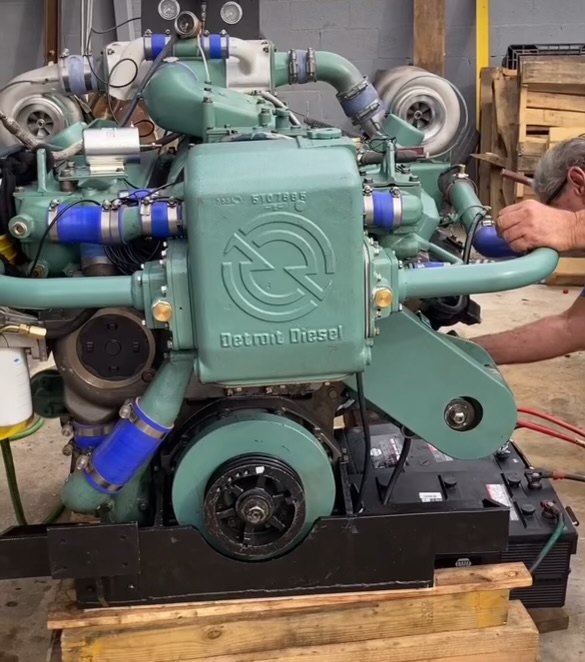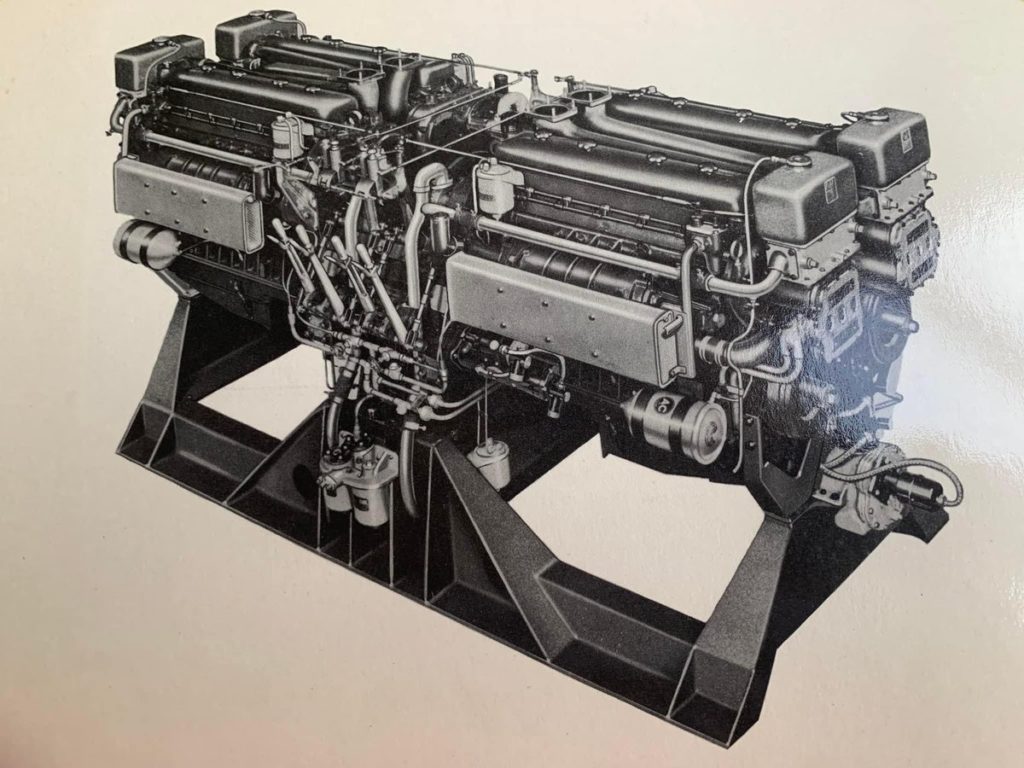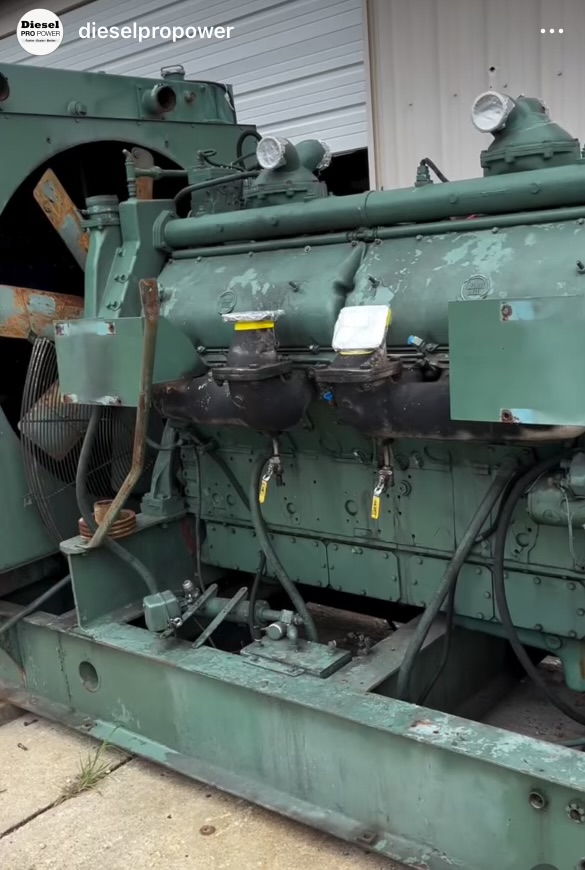
Two-stroke diesel engines hold a special place in engineering history, revolutionizing the marine industry with their innovative design, exceptional performance, and unmatched efficiency. These engines addressed the unique challenges of marine environments and transformed how vessels were powered, from small fishing boats to large commercial ships. Here’s an in-depth look at why two-stroke diesel engines were pioneers in the evolution of marine propulsion and why they remain legendary in the industry.
The Origins of Detroit Diesel and Its Impact on Marine Applications

Detroit Diesel was founded in 1938 as part of General Motors, initially focused on creating reliable diesel engines for heavy-duty applications. During World War II, its engines powered military ships and landing craft, proving their durability and performance under extreme conditions.
After the war, Detroit Diesel expanded its reach into the marine industry, offering engines that were compact, efficient, and powerful—perfect for navigating the challenges of marine propulsion. With their two-stroke cycle technology, these engines quickly became a staple in the industry, earning a reputation for reliability and innovation.
Detroit Diesel’s Engine Series and Marine Success
Detroit Diesel’s two-stroke engines spanned several series, each with unique capabilities that catered to different vessel types and sizes.
-
71 Series:
Known as the “workhorse of the waterways,” the 71 Series powered countless fishing boats, tugboats, and smaller vessels. Its simplicity, durability, and adaptability made it a favorite for marine operators worldwide.
- History Of The Detroit Diesel Quad Engine Setup
- History Of The Detroit Diesel 71 Series Engine & Where They Are Used Today
- The Legacy Of The Detroit Diesel 671 Engine & Where It Is Used Today
- The Legacy Of The Detroit Diesel 12V71 & Where It Is Used Today
- The Legacy Of The Detroit Diesel 8V71 Engine & Where It Is Used Today
- The Legacy Of The Detroit Diesel 671 Engine & Where It Is Used Today
-
53 Series:
Compact and efficient, this series was ideal for small craft and auxiliary marine applications.
-
92 Series:
With higher power output, the 92 Series was widely used in medium to large vessels, offering excellent performance for commercial boats ,private yachts, and more.
-
149 Series:
Designed for heavy-duty use, the 149 Series engines powered large ships, offshore vessels, and industrial marine operations, delivering massive power for the most demanding applications.
These engines shared Detroit Diesel’s hallmarks of simplicity, high power-to-weight ratios, and exceptional torque, making them indispensable in the marine industry. (Learn More About The Timeline Of Marine Diesel Engine Competition)

Key Advantages for the Marine Industry

Two-stroke diesel engines brought a range of benefits that made them well-suited for marine environments:
- Compact Powerhouses:
Space is often limited on ships and boats. Detroit Diesel’s two-stroke engines delivered high power output in a compact form factor, making them easy to install even in tight engine rooms.
- Durability in Harsh Conditions:
Marine engines must endure corrosive saltwater, extreme temperatures, and heavy loads. Two-stroke diesel engines were built with robust materials and simple designs to withstand these challenges.
- Quick Throttle Response:
Precise maneuverability is essential for marine operations, especially in ports or turbulent waters. The two-stroke design allowed for rapid throttle adjustments, enhancing control and safety.
- Fuel Efficiency and Range:
With optimized scavenging and combustion processes, two-stroke diesel engines offered excellent fuel efficiency, extending the range of vessels and reducing operational costs.
- Ease of Maintenance:
In marine applications, downtime can be costly. The simplicity of two-stroke engines made repairs straightforward and minimized time out of service.
Two-Stroke Diesel Technology: Why It Was Ahead of Its Time
The two-stroke diesel cycle compresses intake, compression, power, and exhaust into just two piston movements, resulting in continuous power delivery. This design provided several groundbreaking benefits:
- Higher Power-to-Weight Ratio:
Essential for marine vessels where space and weight savings translate to increased cargo or equipment capacity.
- Superior Torque:
Consistent power at lower RPMs ensured reliable performance under heavy loads, critical for towing and offshore applications.
- Turbocharging Compatibility:
Two-stroke engines were early adopters of turbocharging technology, which further improved power and efficiency.
The Enduring Legacy of Two-Stroke Engines in Marine Applications

Although environmental regulations have shifted the industry toward four-stroke engines, two-stroke diesel engines remain a benchmark for performance, reliability, and innovation. Their impact on the marine industry is evident in the generations of vessels they powered and the engineering advancements they inspired.
By addressing the unique demands of marine environments, Detroit Diesel’s two-stroke engines demonstrated that they were not just products of their time but technologies far ahead of it. Their legacy lives on, a testament to the ingenuity and vision of their creators.



 Free US Calls: 1-888-433-4735
Free US Calls: 1-888-433-4735 International: 305-545-5588
International: 305-545-5588

